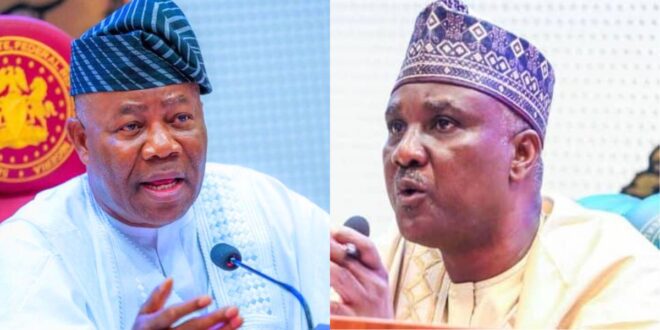
By Ebenezer Ojor
Democracy demands eternal vigilance.
Both leaders and followers have important roles to play in this regard. And to think that positive changes can occur by happenstance in any democratic system, is at best delusional. Invariably the constant adjustments and panel-beating remain crucial to keeping any system on course.
Again, it has been said that if citizens can change their government through periodic elections, those in leadership are more likely to behave responsibly.
Events of the 2023 general elections bring to fore, the imperative for further reforms of the country’s electoral system.
One issue that generated controversies during the last general elections was the mode of transmission of election results. There was the reported issue of the electoral commission not using the iRev portal in the transmission of results. This issue resonated so much such that the electoral commission blamed the non use of the iRev to what it called “glitches.” This position of INEC on the iRev issue raised doubts in the minds of many Nigerians.
In retrospect, the 2019 general elections also generated similar controversy. The presidential candidate of the Peoples Democratic Party in that election, Alhaji Atiku Abubakar insisted on the electoral commission producing its server for experts to examine and possibly determine whether the electoral outcome tallied with what the electoral commission declared.
The legal battles and seeming intrigues that followed are now a subject of study for students of government and history.
Infact the issue of INEC server for the 2019 polls trended widely; even with the insistence of the PDP presidential candidate, Alhaji Atiku Abubakar, no server was reportedly produced by the electoral commission. The rest is history.
The prelude to the passage of the 2023 Electoral Act witnessed heated debates in the National Assembly regarding the issue of electronic transmission of election results.
It was clear that majority of Nigerian voters favour electronic transmission of results on the premise that it will help to a large extent, in eliminating incidents of electoral fraud associated with manual collation and transmission of results.
After the general elections of 2022, hopes remained high as to the possiblity of the courts affirming the idea e-transmission.
However, the five-man panel of the Presidential Elections Petition Tribunal, PEPT, led by Justice Haruna Tsammani, apparently dashed that hope when it reportedly ruled that the only technological device that was mandatory for the Independent National Electoral Commission, INEC, to use for the election is the Bimodal Voter Accreditation System (BVAS).
PEPT while responding to the issue of non-compliance with the Electoral Act and INEC Regulations and Guidelines as filed by opposition candidates, also said there is nothing in the regulation to show that the BVAS must electronically transmit polling units results.
The Tribunal reportedly held that the commission’s Results Viewing Portal (IReV) is not a collation system, and that the judgment in the case of Oyetola Vs INEC clearly supports this.
Justice Tsammani reportedly said, “There is no provision for the electronic transmission of election results in the Electoral Act 2022…It is at best optional.”
Obviously, it has now dawned on Nigerians that there may not be any legal basis for the germane issue of e-transmission of results in the amended Electoral Act 2022.
So, if the issue of e-transmission of election results has no legal foundation and/or lacks the required legal backbone as evident in the PEPT decision regarding the outcome of the 2023 polls, the buck can only bepassed back to the table of the nation’s federal legislators; in this case, the Senate and House of Representatives.
The tinkering of the Electoral Act 2022 as amended has become an imperative with 2027 inching closer. NASS needs to convince Nigerians that its efforts to provide a legal framework that ensures free, fair and transparent elections in the country, do not end up inchoate.
Given that many Nigerians are appear wont on e-transmission of votes during elections, in view of its potential to significantly improve the electoral system, onus is therefore on the Senate and House of Representatives to work on the extant electoral laws, addressing any issues or provisions that constitute clog in our electoral wheels, and ensuring that this time around, the cherished issue of e-transmission of election results is clearly and permanently engraved in the nation’s Electoral Act.
NIGERIA NEWSPOINT


